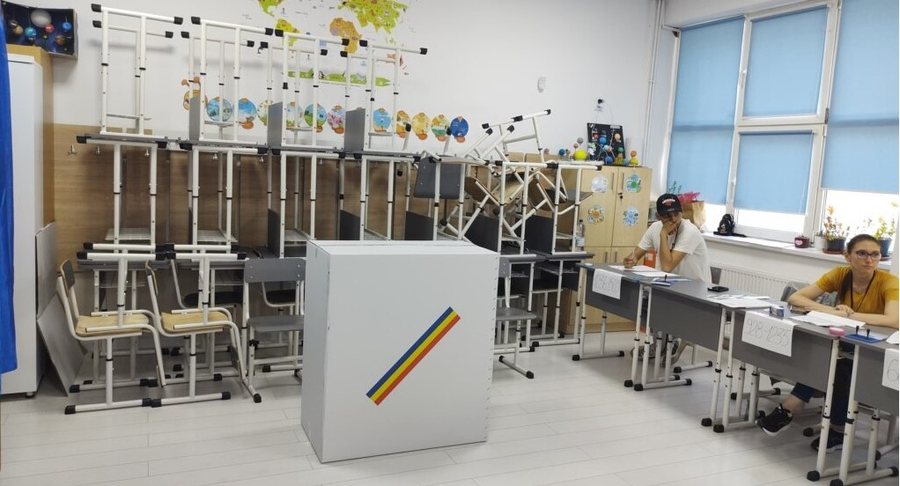
Polls have opened in Romania for a crucial presidential election, which was canceled last year, plunging the European Union and NATO member state into its worst political crisis in decades.
Eleven candidates are running in the election, and a runoff is expected on May 18. Polls opened at 07:00 local time and will close at 21:00. Meanwhile, the Romanian diaspora has been able to vote since Friday.
The focus is not only on who can win, but also on whether last year's debacle can be avoided.
Last time, in November, the pro-Russian nationalist candidate, Calin Georgescu, caused a huge surprise when he came out on top in the first round, winning about 2 million votes. Previously seen as an unlikely figure, however, he was not lucky enough to compete in the runoff round.
Romanian authorities annulled the results amid allegations of Russian interference in the election campaign. Georgescut was subsequently barred from running in the new elections and authorities imposed a series of rules for the new elections now being held.
The events of the past year were extremely controversial and gave Romania an unexpected prominence in the international media. When US Vice President JD Vance reacted during a speech at the Munich Security Conference in February, the situation became even more tense.
"Romania annulled the results of a presidential election, based on weak suspicions from an intelligence agency and under great pressure from its continental neighbors," he told a stunned audience of politicians and diplomats.
Like many EU countries, anti-establishment sentiment is high in Romania, fueled by high inflation and the cost of living, a large budget deficit and a weak economy.
While data from local polls should be taken with caution, half of the polls suggest that far-right nationalist George Simion is likely to enter the runoff round, where he is expected to face either Bucharest mayor Nicusor Dan or the ruling coalition candidate Crin Antonescu.
Dan, 55, is a mathematician and anti-corruption activist who founded the Union for the Salvation of Romania (USR) party in 2016. He is running on a pro-European Union bid. He has said Romania needs a president “who has the will and the ability to reform the system.”
Centrist Antonescu, 65, has campaigned on restoring Romania's pro-Western orientation, while Victor Ponta, who served as prime minister from 2012 to 2015, has run a "Romania First" campaign and called for the country to have closer relations with the administration of US President Donald Trump.
Another candidate, Elena Lasconi, came second in the first round of voting last year and is also running in the run-off. She has positioned herself as a pro-Western, anti-establishment candidate, denouncing what she has described as a corrupt political class.
Distrust of authorities remains widespread, especially among those who voted for Georgescu, a sizable constituency that Simion has sought to win over.
“The anti-establishment sentiment is not like an anarchic movement, but it is against the people who have destroyed this country,” Simion told the Associated Press. He had come in fourth place in the primary, which was canceled, and then supported Georgescu.
"We are no longer a democratic state," he added.
Simion said his nationalist party, the Alliance for the Unity of Romanians (AUR), is “fully aligned with the MAGA [Make America Great Again] movement” taking advantage of a rising wave of populism in Europe following Trump’s return to the White House.
The AUR party surged during the 2020 parliamentary elections when it proclaimed that it defends "family, nation, faith and freedom," and has since doubled its support.
The repeat elections are a key moment for Romania as the country tries to restore democracy and preserve its geopolitical alliances, which have been strained since the cancellation of the presidential primary.
The president in Romania has a five-year term and has an important role in making decisions in the field of national security and foreign policy. REL (A2 Televizion)











